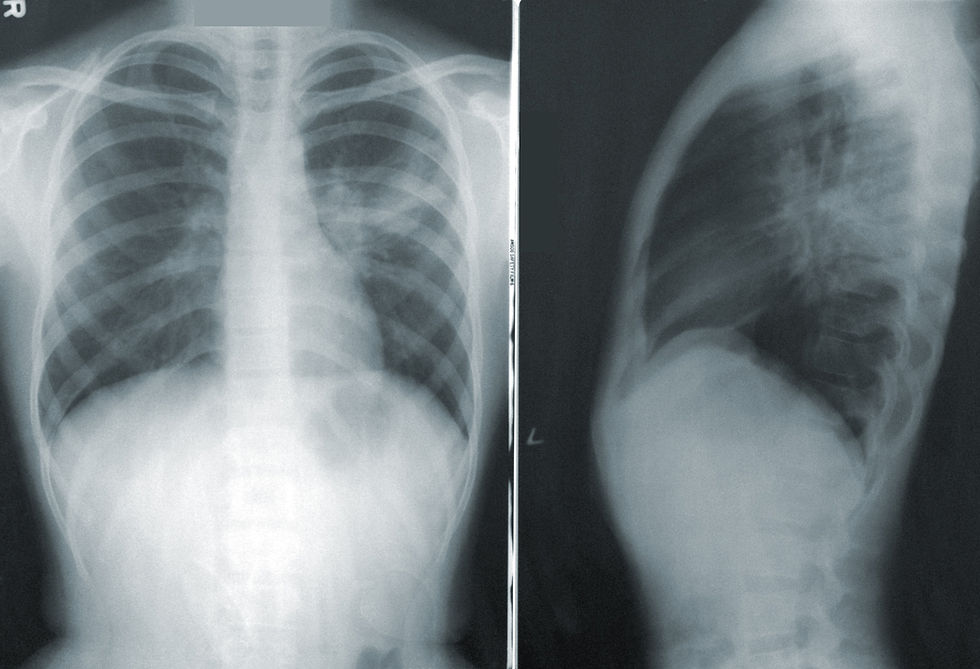AI: Revolutionizing Medical Technology
- annaitbbandung

- Oct 3, 2021
- 3 min read
Updated: Jan 20, 2023
Artificial Intelligence (AI) has the potential to revolutionize the medical technology industry by improving the accuracy and efficiency of diagnosis, as well as the effectiveness of treatments. Here are a few ways in which AI is already being used, or could be used, in the medical field:

Diagnosis: AI algorithms can analyze medical images, such as X-rays, CT scans, and MRIs, to identify signs of disease or injury. For example, AI algorithms can be trained to identify patterns in medical images that indicate the presence of cancer. This can enable doctors to make more accurate diagnoses, which can lead to earlier treatment and better outcomes for patients.
Predictive analytics: AI can analyze large amounts of data, including electronic health records (EHRs) and genomic data, to identify patterns that can help predict future health outcomes. For example, AI can be used to identify patients who are at high risk of developing certain conditions, such as heart disease or diabetes, so that preventive measures can be taken.
Drug development: AI can be used to analyze large amounts of data on chemical compounds and biological systems, which can aid in the discovery and development of new drugs. For example, AI can be used to identify potential drug targets and predict how drugs will interact with the body.
Robotics: AI-powered robots can assist surgeons in the operating room by providing them with real-time information and enabling them to make more precise cuts. This can lead to fewer complications and faster recovery times for patients.
Chatbot and virtual assistant: AI-powered virtual assistant can help improve communication and coordination between patients and their healthcare providers. They can help schedule appointments, answer patient questions, and provide information on treatment options. These chatbot can also help in reducing the burden on physicians and nurses by answering the routine questions.
Clinical trial optimization: AI-powered systems can help identify the most promising candidates for clinical trials and optimize trial designs, which can lead to more efficient and effective trials and faster development of new treatments.
Personalized medicine: AI can be used to analyze genomic data, medical images, and other forms of data to identify unique characteristics of individual patients. This can enable doctors to develop more personalized treatment plans that are tailored to the specific needs of each patient.
Administrative tasks: AI can help streamline administrative tasks in the healthcare industry, such as scheduling, billing, and coding. This can help reduce costs, improve efficiency, and free up healthcare professionals to focus on patient care.
These are some examples of how AI can be used in the medical field to improve diagnosis, treatment, and overall patient care. However, it's important to note that AI is still a developing technology and more research and development is needed to fully understand its potential and limitations. In addition, the implementation of AI requires a close collaboration between medical professionals, data scientists, and computer scientists, to ensure the safe and ethical use of the technology, and that it is used in ways that truly benefit patients.

In conclusion, Artificial intelligence technology is rapidly advancing, and it has the potential to revolutionize the medical technology industry by improving diagnosis, treatment, and overall patient care. With AI, doctors will be able to analyze large amounts of data to identify patterns, make more accurate diagnoses, and develop personalized treatment plans. AI-powered robots can assist surgeons in the operating room, leading to fewer complications and faster recovery times for patients. The technology can also help streamline administrative tasks, such as scheduling and billing, freeing up healthcare professionals to focus on patient care. However, it is important to note that AI is still a developing technology and more research and development is needed to fully understand its potential and limitations.

![[Infographic] Vibe Coding: How AI Is Transforming the Way We Build Apps](https://static.wixstatic.com/media/50d469_d51024d0da444eec8589c960f906e019~mv2.png/v1/fill/w_980,h_1748,al_c,q_90,usm_0.66_1.00_0.01,enc_avif,quality_auto/50d469_d51024d0da444eec8589c960f906e019~mv2.png)


Comments